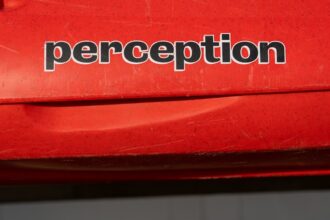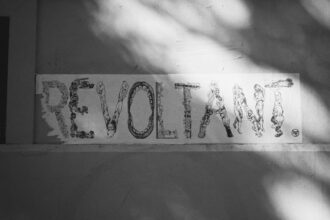You may not realize it, but emotional wounds can shape your life in profound ways. These wounds, often stemming from past traumas, disappointments, or losses, can linger in your psyche, influencing your thoughts, behaviors, and relationships. Recognizing the impact of these past pains is the first step toward healing.
You might find that certain triggers evoke strong emotional responses, or that you struggle with feelings of inadequacy or fear of abandonment. Understanding that these feelings are rooted in your past can help you begin to untangle the complex web of emotions that may be holding you back. As you delve deeper into your emotional landscape, you may discover that these wounds manifest in various aspects of your life.
Perhaps you find it difficult to trust others, or you often feel overwhelmed by anxiety. Acknowledging the presence of these emotional scars is crucial; it allows you to confront them rather than bury them beneath layers of denial. By recognizing how past pain influences your current experiences, you empower yourself to take the necessary steps toward healing and growth.
Key Takeaways
- Emotional wounds have a significant impact on our lives, often affecting our relationships and overall well-being.
- Self-awareness is crucial in identifying and acknowledging emotional wounds, allowing for the opportunity to address and heal them.
- Healing through acceptance involves embracing the past and letting go of resentment, leading to inner peace and emotional freedom.
- Forgiveness plays a vital role in releasing anger and finding peace, ultimately contributing to emotional healing and growth.
- Building emotional resilience is essential for strengthening the mind and spirit, enabling individuals to navigate through life’s challenges with greater ease.
The Power of Self-Awareness: Identifying and Acknowledging Emotional Wounds
Self-awareness is a powerful tool in your journey toward healing. By taking the time to reflect on your thoughts and feelings, you can begin to identify the emotional wounds that have shaped your life. This process may involve journaling, meditation, or simply sitting in quiet contemplation.
Acknowledging these emotions is essential; it allows you to confront the pain rather than allowing it to fester beneath the surface. Once you have identified your emotional wounds, it’s important to acknowledge their existence without judgment.
You might feel a range of emotions—sadness, anger, or even shame—as you confront these aspects of yourself. However, it’s crucial to approach this process with compassion. Understand that these wounds are a part of your story, but they do not define who you are.
By embracing self-awareness, you create a foundation for healing that allows you to move forward with greater clarity and purpose.
Healing Through Acceptance: Embracing the Past and Letting Go of Resentment
Acceptance is a vital component of healing emotional wounds. It involves recognizing and embracing your past experiences without allowing them to dictate your present or future. This process can be challenging; it requires you to confront painful memories and emotions head-on.
However, as you learn to accept what has happened, you may find that the weight of resentment begins to lift. You might discover that holding onto anger or bitterness only prolongs your suffering, preventing you from fully engaging with life. Embracing acceptance also means acknowledging that healing is not linear.
There will be days when you feel empowered and ready to move forward, and other days when the past feels overwhelming. Allow yourself the grace to experience these fluctuations without judgment. By accepting both the highs and lows of your healing journey, you cultivate resilience and strength.
This acceptance paves the way for deeper healing, enabling you to let go of resentment and embrace a more peaceful existence.
The Role of Forgiveness: Releasing Anger and Finding Peace
| Key Points | Benefits |
|---|---|
| Forgiveness | Reduces stress and anxiety |
| Releasing Anger | Improves mental and emotional well-being |
| Finding Peace | Promotes healthier relationships |
Forgiveness is often seen as a gift we give to others, but it is equally a gift we give ourselves. When you hold onto anger or resentment, it can weigh heavily on your spirit, preventing you from experiencing joy and peace. Forgiveness does not mean condoning the actions that caused your pain; rather, it is about releasing the hold that those actions have on your life.
As you embark on this journey of forgiveness, you may find that it opens up new pathways for healing and growth. To begin the process of forgiveness, start by reflecting on the emotions tied to your pain. Acknowledge the hurt and anger you feel, but also consider how holding onto these feelings affects your well-being.
You might find it helpful to write a letter—whether or not you choose to send it—to express your feelings toward those who have hurt you. This act can serve as a powerful release, allowing you to let go of the burden of anger and move toward a place of peace.
Building Emotional Resilience: Strengthening the Mind and Spirit
Emotional resilience is the ability to bounce back from adversity and navigate life’s challenges with grace and strength. As you work through your emotional wounds, building resilience becomes essential for maintaining your mental and emotional well-being. You can cultivate resilience by developing coping strategies that empower you during difficult times.
This might include practicing mindfulness techniques, engaging in physical activity, or seeking out supportive relationships. Additionally, nurturing a growth mindset can significantly enhance your emotional resilience. Embrace challenges as opportunities for growth rather than obstacles to overcome.
When faced with setbacks, remind yourself that they are part of the human experience and do not define your worth or potential. By fostering resilience within yourself, you create a solid foundation for navigating life’s ups and downs while remaining connected to your inner strength.
Seeking Support: The Importance of Therapy and Counseling in Healing Emotional Wounds
While self-reflection and personal growth are vital components of healing, seeking support from a therapist or counselor can provide invaluable guidance on your journey. Professional support offers a safe space for you to explore your emotional wounds without fear of judgment. A trained therapist can help you navigate complex feelings and provide tools for coping with pain in healthier ways.
Therapy can also facilitate deeper self-awareness by helping you uncover patterns in your thoughts and behaviors that may be rooted in past experiences. Through this process, you may gain insights into how these patterns affect your current relationships and overall well-being. By working with a professional, you empower yourself to take proactive steps toward healing while receiving support tailored to your unique needs.
Practicing Self-Compassion: Nurturing the Inner Self and Cultivating Self-Love
Self-compassion is an essential aspect of healing emotional wounds. It involves treating yourself with kindness and understanding during times of struggle rather than succumbing to self-criticism or judgment. You may find it helpful to practice self-compassion by acknowledging that everyone experiences pain and makes mistakes; this shared human experience can foster a sense of connection and understanding within yourself.
To cultivate self-love, consider incorporating daily affirmations or positive self-talk into your routine. Remind yourself that you are worthy of love and happiness despite your past experiences.
By prioritizing self-compassion, you create a nurturing environment for healing and growth.
The Healing Power of Mindfulness: Living in the Present and Letting Go of the Past
Mindfulness is a powerful practice that encourages living in the present moment while letting go of past regrets and future anxieties. By focusing on the here and now, you can cultivate a sense of peace and clarity that allows for deeper healing. Mindfulness practices such as meditation, deep breathing exercises, or mindful walking can help ground you in the present moment.
As you engage in mindfulness practices, you may notice how often your mind drifts toward past pain or future worries. Gently redirecting your focus back to the present can help break this cycle of rumination. Over time, mindfulness can foster greater emotional regulation and resilience, allowing you to respond to challenges with calmness rather than reactivity.
Cultivating Positive Relationships: Surrounding Yourself with Love and Support
The relationships you cultivate play a significant role in your healing journey. Surrounding yourself with positive influences—people who uplift and support you—can create an environment conducive to growth and recovery. Consider reaching out to friends or family members who understand your struggles and can offer encouragement during difficult times.
Additionally, seek out communities or support groups where individuals share similar experiences. Connecting with others who have faced similar challenges can foster a sense of belonging and validation as you navigate your healing journey together. By cultivating positive relationships, you create a network of support that reinforces your commitment to healing.
Creating a New Narrative: Rewriting the Story of Your Past and Embracing a Positive Future
As you work through your emotional wounds, consider the power of storytelling in shaping your identity. You have the ability to rewrite the narrative of your past by reframing how you view your experiences. Instead of seeing yourself solely as a victim of circumstance, recognize the strength and resilience you’ve developed through adversity.
This process may involve reflecting on lessons learned from past pain or identifying moments of growth that emerged from challenging situations. By embracing a new narrative—one that highlights your capacity for growth—you empower yourself to envision a positive future filled with possibilities.
Living a Life of Purpose: Finding Meaning and Fulfillment Beyond the Pain of the Past
Ultimately, healing from emotional wounds involves finding meaning beyond past pain. As you navigate this journey, consider what brings you joy and fulfillment in life. Engaging in activities aligned with your values—whether through creative expression, community service, or pursuing passions—can provide a sense of purpose that transcends past struggles.
By focusing on what truly matters to you, you create a life rich with meaning and connection. Embrace the idea that while pain may be part of your story, it does not define your entire existence. Instead, allow it to serve as a catalyst for growth as you move forward into a future filled with hope and possibility.
In conclusion, healing from emotional wounds is a multifaceted journey that requires self-awareness, acceptance, forgiveness, resilience, support, self-compassion, mindfulness, positive relationships, narrative reframing, and purpose-driven living. As you embark on this path toward healing, remember that each step taken is an act of courage—a testament to your strength as you reclaim your life from the shadows of past pain.
Healing past pain permanently is a journey that often requires a deep understanding of one’s emotions and the underlying causes of distress. A valuable resource in this journey is the article on Unplugged Psychology, which delves into various therapeutic approaches and self-help strategies that can facilitate emotional healing. By exploring techniques such as mindfulness, cognitive restructuring, and emotional release, individuals can work towards resolving past traumas and achieving lasting peace. For more insights on these methods, you can read the related article on their website by following this link: Unplugged Psychology.
WATCH NOW! 😔 The Hidden Cost of Forced Positivity
FAQs
What is past pain?
Past pain refers to emotional or psychological distress that has been experienced in the past, such as trauma, grief, or difficult life events.
Why is it important to heal past pain?
Healing past pain is important for overall mental and emotional well-being. Unresolved past pain can lead to ongoing distress, relationship difficulties, and even physical health problems.
How can past pain be healed permanently?
Healing past pain permanently often involves a combination of therapy, self-reflection, and self-care. It may also involve processing and understanding the root causes of the pain, and developing healthy coping mechanisms.
What are some common methods for healing past pain?
Common methods for healing past pain include therapy (such as cognitive-behavioral therapy or trauma-focused therapy), mindfulness and meditation, journaling, and engaging in activities that bring joy and relaxation.
Is it possible to completely erase past pain?
While it may not be possible to completely erase past pain, it is possible to heal and move forward in a way that allows for a fulfilling and meaningful life. Healing past pain often involves acceptance and learning to live with the experiences in a healthy way.
How long does it take to heal past pain permanently?
The time it takes to heal past pain permanently varies for each individual and depends on the nature and severity of the pain. It may take weeks, months, or even years to fully heal from past pain.




